|
When it comes to ordering music, we only shop local, and by local, we buy all of our music at Nadine's Music Manor. Nadine's Music Manor has been around since 1972. I was first introduced to her in my first days at Dallas/Music. At one point, it was my job to order music and I would call her once or twice a week to order what we needed. Sometimes, I would go get it from her store, and other times, she had it delivered to us. I developed a personal relationship with her. In the very early days of Music SO Simple, we decided to continue that tradition and order our music from her. We think it's much easier to buy our student's music and give it to them, rather than tell parents what to get. As a busy parent myself, I definitely don't want something else added to my plate! Fast forward to today: Nadine's has been a life line for us! We have had to get extra music from her because we are teaching so many lessons virtually so that we can see what our students are practicing. She almost always has exactly what we need and we are so grateful. When things clear up in our city, it would be fun for our parents to take our students on a field trip to a "real life" music store! Remember when we used to go and pick out records/cassettes/CDs? Do you remember that surge of excitement you would get just being there? Yeah, that's what it feels like! Something that Amazon simply cannot replicate! Needless to say, that even though this may not be the best time to browse, knowing that we support our local music store means so much to me, and to her. Knowing that I can pick up the phone and ask her if she has a certain edition in stock, or where can I find a specific piece....well, that's worth so much to me.
This weird time of COVID has made me think about supporting the small businesses, like us. Know that when you see a music charge on your bill, it is the cost we pay to Nadine's Music Manor. We take no profit; everything goes straight to her. So, you too, are supporting her.
0 Comments
-Meredith Manley Our May Awards Recital is always something we all look forward to at the end of each school year! Due to the circumstances, our May recital this year looks a little different: instead of performing for a live audience, our students are submitting a recorded video of themselves performing at home. They have been working so hard on their recital pieces, and we wanted to give them a chance to still perform in the safest way we could. We will be putting together the videos to make virtual recitals and sending them out to all of our families! At the end of the May recital, we call up students one by one and present them their bag of yearly awards. Most families head home with their awards, but don’t always understand what they are for or how their child earned them. So I thought this blog would be a great way to explain all the different types of awards students can earn!
 Our last category of awards has to do with how long a student has been studying their instrument. Awards start at half a year of study all the way through their senior year.
Our intention is never to hurt anyone’s feelings if they didn’t receive many awards. We know how challenging it is to earn some of these, and we feel that students who achieve them should be recognized and celebrated. Reflecting on the quality of a student’s work is a valuable lesson no matter the outcome because it shows them how far they’ve come in the last 9 months, and shows them what could be improved so that they earn a certain award next year. We think awards are the perfect way to end the school year, and we really are so proud of all of our students!
-Stathia Orwig
At the very beginning of my summer, the day after my son's eighth grade graduation, we got the horrible news that Paula had died. Even though she had suffered so much pain and trauma over the 9 months after her fall which resulted in a brain injury, we still held out hope that she would one day recover. But knowing she is in a place without suffering is an answered prayer. So who is Paula? Well, the easiest explanation is that she was my piano teacher's wife. To the general person, that may not seem like much, but as I started thinking about what most people think, I have really begun realizing why I put so much effort into my students and why I think being with the "right" piano teacher is so important. At the beginning of this huge loss, I was so confused as to why people were asking me who Paula was and why was my entire family at her funeral? To be honest, I was dumbfounded. Jerry, my piano teacher, and Paula were a huge part of my family. They became part of our life when I was 8 years old. Paula worked for the Dallas County Commissioner, and regularly ate at my parent's restaurant. She had told my parents that her husband was a piano teacher, and literally the rest is history. My parents instantly became friends. We had piano twice a week, with all 4 of our lessons back to back, which meant we were at their home for hours. Paula ended up spending evenings with my family while Jerry accompanied the Dallas Symphony Chorus every Monday night. She helped us with homework- in fact, she was an amazing tutor! Seriously, I have no idea how I would have gotten through 7th and 8th grade history or Ursuline without her help! As our lessons continued and our relationship became stronger, Jerry and Paula went on family vacations with us. They never had their own children and it's not really a secret that they adopted us. They even came to Greece with us! In college, I had a trip to New York that had me a little freaked out, and Paula took off from work to come with me. Paula, especially, was like a second mom to me and my 3 siblings. Even just writing this brings tears to my eyes. It wasn't just my family. To explain how many students Jerry and Paula affected is not even possible. Together they attended countless student weddings, college graduations, and music productions. They supported every single student. I can't count how many of his students reached out to Jerry with Paula's death or were at her funeral. I can't possibly give enough of a tribute to Paula's life. I can smile when I see my wedding certificate, and know that Paula's signature is on it (this is where working at the Dallas county comes in handy! I remember her so giddy with excitement taking care of this for me and Brian). I think of all of the ways my "piano teacher" affected my life, and it's not all at the piano! When I say that relationships are important, this is where it stems from. I'm not saying that you will have the same sort of relationship with your piano teacher, but there will be a lot of influence both at and away from the instrument. Even just today, one of my students was dropping off her brother for a guitar camp and she wanted to stay and "help me work". I love being invited to my old student's weddings! I still stay in touch with them, even if it's just through holiday cards each year. This one bit of family and kindness is what our world is. And it's important. Life is short and relationships are important. I know we all stay so busy, but Paula has made me realize that we all need to slow down and enjoy each other and life just a little more. A lot has changed since we originally wrote our blog, “What Makes Us Different From Other Studios” back in November 2016, so I decided that we needed to write an updated version! Besides our Music Buck system and our very own Early Childhood curriculum which we wrote about in the first blog, we’ve got a lot of new things that makes us different than any other studio out there! Student of the Week is something that we really love about our studio. Each teacher can choose a student who stood out that week in their lesson- or not choose anyone if there was nothing to write home about! Students’ pictures are displayed on our Student of the Week board at the studio. They also get 10 music bucks and a printed certificate, and the best part- our Student of the Week yard sign, which they can sign their name on the back and keep at home for the week! Our Adult Performance Opportunity called the Champagne Serenade is also new this year. We wanted our adult students to have a casual and fun performance experience to showcase what they’ve been working on, and meet our other adult students! We are really excited to host our first Serenade this Saturday, May 4th. We get a lot of compliments and positive feedback from our parents about our sense of community, which has always been super important to us: we really strive to make our studio feel like a family. We’ve created an inviting studio space for our students who have lessons there, but we also want our students who have in-home lessons to feel just as much a part of the studio. Each Sunday we send out a weekly email newsletter that includes Students of the Week, upcoming student birthdays and events, our Merry Musicians preschool class, and our latest blog. Recital Prep/Theory Group Classes are something we’ve added since we opened our studio space. We offer 2-3 group classes before each recital and DMTA festival, so that students can perform their prepared pieces in front of a small group and get feedback from the teacher. As of now, we have a group theory class every February for those students who are taking the Texas State Theory Exam. We know that there are amazing teachers all over the metroplex, but something that helps us stand out from the rest is the time and care we put into matching students with the right teacher based on personality and learning goals. Before we enroll any new student, we conduct a phone interview with potential families so that we can pair them with a teacher that we think they will mesh well with. The right fit between student and teacher is extremely important for happiness and longevity in lessons!
Last but not least, we are very proud to say that all of our teachers at Music So Simple are Dallas Music Teachers Association (DMTA) members, with three of our teachers serving on the board. We think that being involved in our local association is essential for continuing education, personal growth, and extra opportunities for our students. We are really proud of the studio we’ve built in the last 3 years, and we will continue to make improvements where needed. We value feedback from all of our families and most importantly we always put people first! -Meredith Manley Teaching in a big city like Dallas has its pros and cons: on the plus side, we have more potential students, more connections, and more resources. But with a larger population, that also means we have more competition. There seems to be a teacher with space in their studio around every corner. In a competitive city, it is important for us to make sure that our studio stands out amongst the rest. One thing that differentiates us from other studios is our reward system. We’ve written about music bucks before, but I can’t say it enough- they REALLY work in helping students progress and reach their yearly goals. Students can earn Music Bucks for practicing, memorizing pieces, participating in classes outside of their lessons, or doing extra theory work. At the end of the month, they can spend (or save) their bucks to buy prizes. I’ve seen a lot of studios do prizes every 3 or 4 months or once a year, but in my experience the more often they receive rewards, the better! Another unique feature of our studio is that our early childhood curriculum was created by us based on our teaching experience and expertise. We’ve taken the favorite songs and activities from over the years and put them into a successful program. Ms. Stathia has been teaching these classes for over 15 years, and Ms. Meredith has been teaching Music Together for over 10 years, so we really know what works. Our preschoolers learn about different instruments, cultural music, and learn to identify notes and rhythm patterns. It’s a great program that is not only educational, but helps prepare them for private lessons later. Ms. Stathia and Ms. Meredith are also both board members of the Dallas Music Teachers Association. We feel it’s important to be active in this organization, and we make it a priority for our students to participate in DMTA events. We also encourage our students to take the state theory exam each year. Being involved in DMTA helps us stay connected in the teaching community, and elevates our expectations for our students. And last but certainly not least, our strong relationships with our students set us apart. We really feel that building trust and a friendship with our students is what really helps them blossom, and they want to make us proud. If there is no attachment, students typically don’t care about how well they do and tend to quit. We strongly believe in the teacher/student relationship and taking time to place each student with a teacher. Our students are very special to us and it’s this bond that we cherish the most. Not that other studios don’t feature these things, but it’s hard to find a studio that has ALL of these. If you are searching for a studio, please be sure to think about other things besides proximity and price- it is the quality of the teacher that it most important.
-Stathia Orwig I’ve been playing sonatinas before I ever knew what a sonatina even was, so everytime I’m asked what a sonatina is, I am kinda caught off guard! As we are preparing for many of our students to participate in the Dallas Sonatina-Sonata Festival on December 10th, we thought we’d share why learning sonatinas are important!
Sonatinas are short sonatas, which means “a piece that sounds on a musical instrument” in Italian. They have been an important form throughout music history and were originally developed in the Classical Era (1770-1820). Hundreds of sonatinas have been written, and composers still continue to write them today. Sonatinas either have two, three, or four movements, and the movements tend to have more than one theme or melody. Each movement depicts a different character, and are usually differentiated from each other by tempo markings, meter, and/or mood. What each sonatina has in common is that they follow a certain form, or structure. For example, some movements of sonatinas are designed in three part form, or ternary form, labeled as ABA. There is the main theme (A), a second theme is introduced (B), and then the return of the main theme (A). Ternary form can usually be found in the first, second, and fourth movements, although you can see other forms in these movements as well. Third movements are usually in rondo form. In rondo form, the main theme (A) always returns before a new theme is introduced. So why play a sonatina? Playing a classical piece of music is important in the development of every budding pianist. Learning these classical pieces gives the student a way of learning sonatina form, completing a challenge, and the dedication of working hard on a piece. The sonatina festival is essentially a recital of sonatinas played by students from across the metroplex. Each student plays one movement from the sonatina from memory while they are critiqued by a judge. These critiques are wonderful to get- as much as what we tell our students help them improve, hearing it from a judge is fantastic!! Be proud of your student for learning a sonatina- they are learning a core piece of music as a pianist, and it’s not an easy task! |
Archives
July 2024
Categories
All
|
|
|
MUSIC SO SIMPLE
|
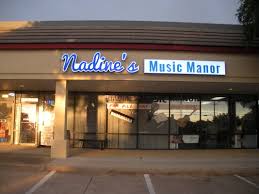

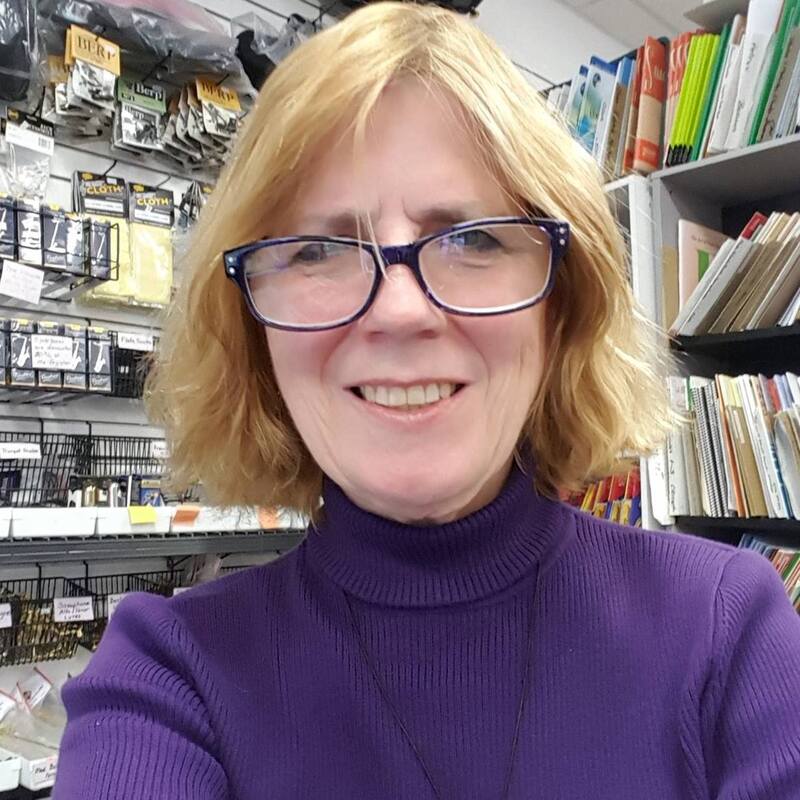
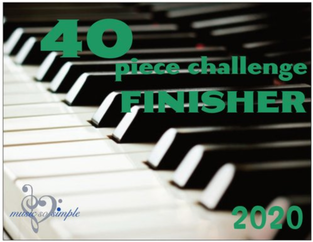
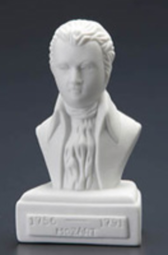
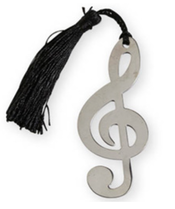
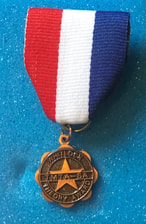
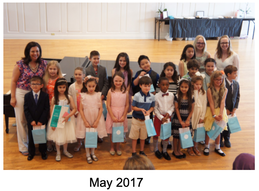
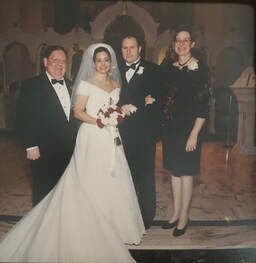
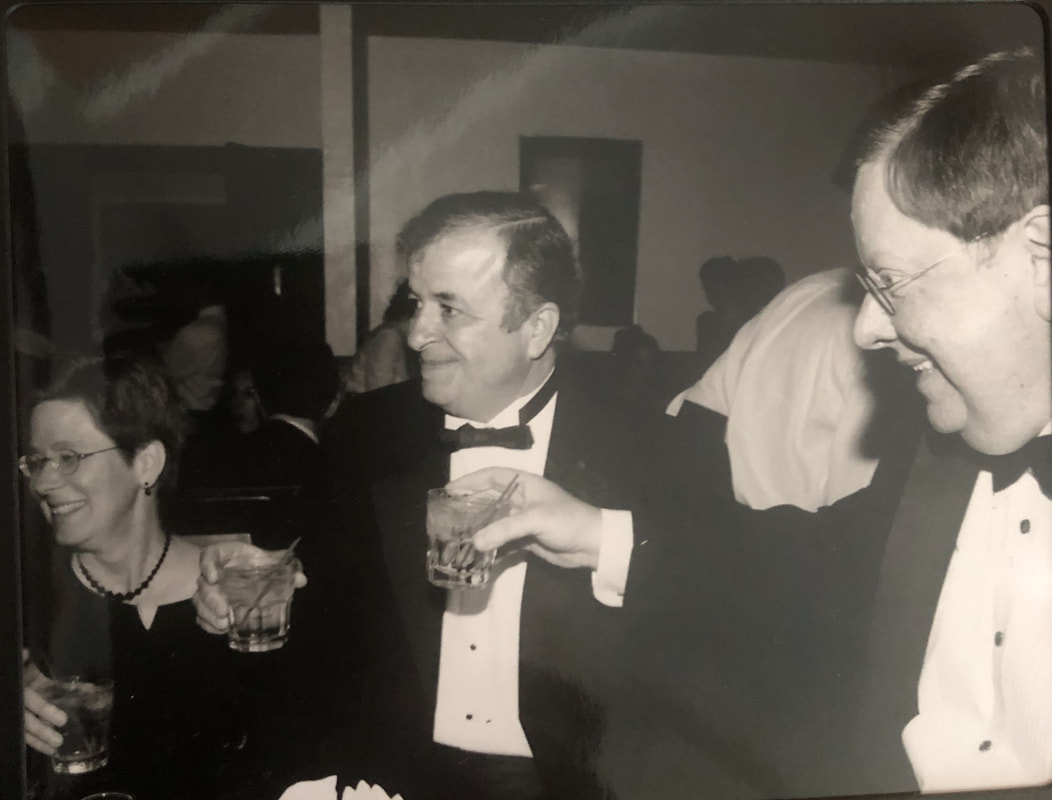
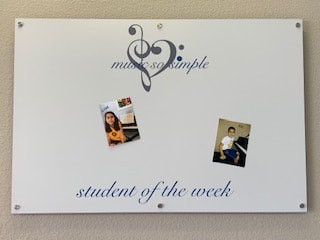
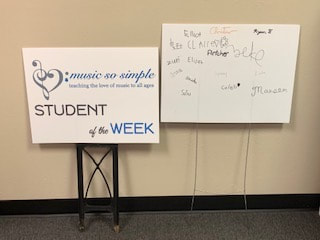
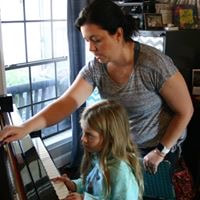
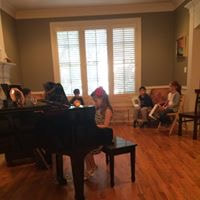
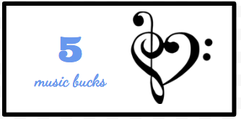
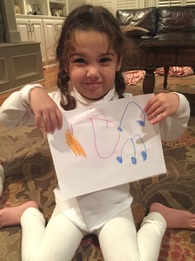
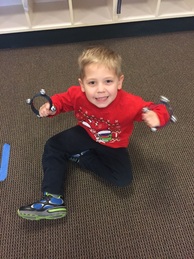
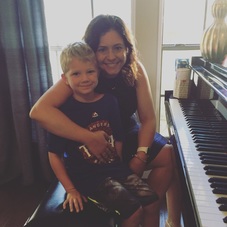
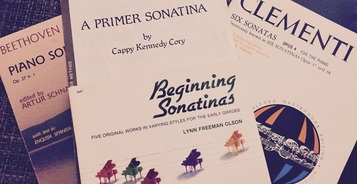
 RSS Feed
RSS Feed